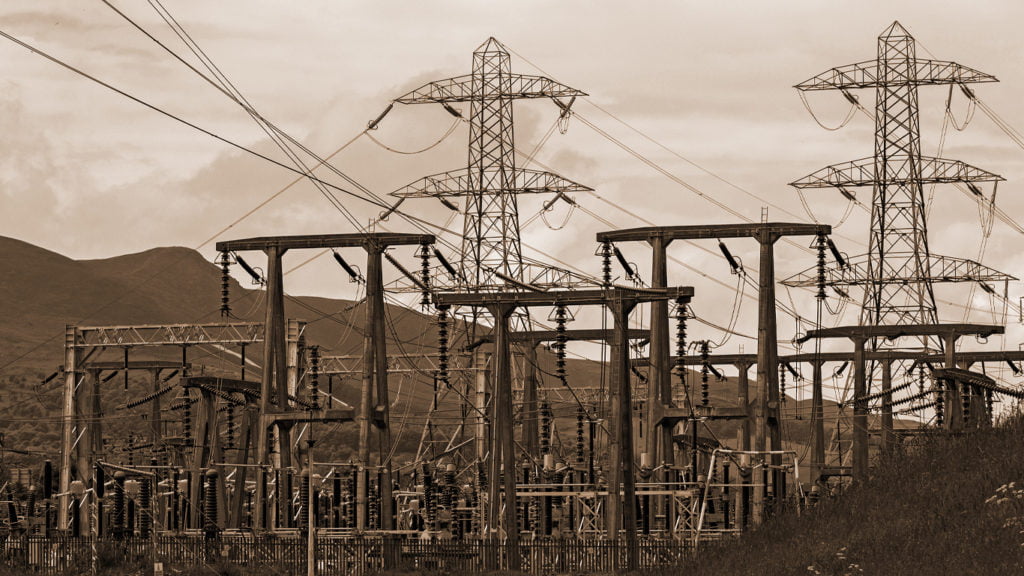The global scientific consensus on the need to tackle climate change, and the most recent international agreement agreed in Paris last year, means we must decarbonise.
In the generation of electricity that process is already well underway.
But heat and transport (sectors which make up almost 80% of our total energy demand) lag significantly behind.
The need to reduce the CO2 emissions which is the main contributor to climate change isn’t just shaping how energy is produced – it’s changing the way it’s used.
Already local authorities, housing associations and, to a lesser extent, the private sector are decentralising their energy supplies.
This means, according to the Carbon Trust, generating “off the main grid”, either in electricity or in heating and cooling.
This often involves re-examining the traditional generator-supplier-consumer model the energy market has been based on for many years and, in some cases, removing those distinctions altogether.
It can refer to sourcing energy from waste plants, hydro, wind, biomass, geothermal, or solar energy, among others.
Schemes can serve a single building or a whole community (through district heating), and be built out across entire cities.
The Scottish Government’s new energy strategy, currently being drafted, will focus more closely on opportunities for decentralised systems – reflecting the benefits they bring.
Already, the Scotland Heat Map shows where opportunities for heat networks exist, the heat density of particular areas and the proximity to heat sources like factories, from which waste heat could be harnessed.
When it comes to taking control of their own energy use, Europe is ahead of the UK.
In Copenhagen, 98% of homes are connected by district heating networks, where shared boilers heat water which is circulated through properties.
The carbon savings of this approach, rather than individual homes burning fossil fuels, are significant.
In Norway, heat-pump technology built in Glasgow provides 85% of all the hot water needed by the city of Drammen (which is larger than Livingston) by extracting thermal energy from a chilly fjord and circulating it round a district heating network.
And there’s another side to decentralising, too: increased competition helping to drive down consumer energy bills.
Local authorities in Nottingham and Bristol have now set up their own energy companies, which they say can save customers up to £250 a year on energy bills.
Since September, when Nottingham City Council launched Robin Hood Energy, the region has moved from seventh to first place in terms of price competitiveness in England.
In Enfield, the local authority is to create a company to pipe hot water from an energy-from-waste facility to a new £1.5 billion social housing development.
Now both London Mayor Sadiq Khan and the Scottish Government are giving consideration to setting up Energy Services Companies, or ESCos.
These are moves which could have big impacts on the way we purchase our heat and electricity
There are challenges, however, and so far progress in Scotland has been slower than preferred.
Glasgow City Council has been planning an ESCo – and a city centre district heating network similar to Enfield’s – for six years, while the subject was under discussion in Edinburgh in 2013, with the ESCo recruiting a Board of Directors only earlier this year
These delays, according to Richard Bellingham, director of the Institute for Future Cities at Strathclyde University, are largely down to cost.
Analysis conducted by consultancy firm Jacobs on behalf of the Scottish Cities Alliance last year suggested Scotland’s seven cities are “on the right path” in terms of actions being prioritised to deliver a low-carbon economy – “albeit the scale and pace of application needs to be raised substantially”.
The benefits of increasing that pace and scale – in terms of lowering energy costs for consumers and cutting carbon emissions – are substantial.
Government, industry and academia all have a responsibility to ensure we stay on the right path, and Scottish Renewables will be doing all it can to keep the momentum going.
However, what is certain is that the decentralised energy market of the future will look very different to today’s.
Stephanie Clark is a Policy Manager for Scottish Renewables
